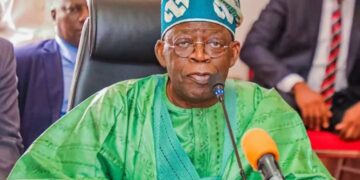As Nigeria braces for its National Security Summit, the Senate has stepped into the spotlight, confronting the country’s escalating digital insecurity crisis with a unified legislative charge.
From hacked phones to hijacked narratives, the digital landscape is becoming a battleground—fueled by cybercrime, artificial intelligence, and public distrust. In response, the Senate Committee on ICT and Cybersecurity, chaired by Senator Afolabi Shuaib, convened a high-level interactive session in Abuja on Wednesday to tackle these urgent threats head-on.
Formally opened by Senate Leader Opeyemi Bamidele, the session brought together lawmakers, telecom operators, cybersecurity professionals, and regulators to assess Nigeria’s vulnerabilities and craft a path forward.
“Technology has become a double-edged sword,” Senator Shuaib warned. “While it fuels innovation and growth, it is also enabling crime, extortion, harassment, and terrorism. If we don’t act now, we’ll be chasing shadows at the National Security Summit.”
This was no routine gathering. Senators spoke with urgency—and often personal frustration—over how digital fraud, cyberbullying, and misinformation are outpacing Nigeria’s current regulatory frameworks. One senator voiced alarm over fintech platforms being exploited by criminals: “Kidnappers are collecting ransom using our telecom networks. Where is the oversight?”
Another decried the spread of AI-fueled disinformation: “Someone with 10MB of data can destroy reputations and lives—and they do it with impunity.”
Lawmakers also called out the absence of global tech giants from Nigeria’s regulatory landscape, with Senator Ned Nwoko questioning why companies like Meta are not compelled to establish a local presence. “Could this improve digital law enforcement and accountability?” he asked.
Despite Nigeria’s digital economy now accounting for nearly 20% of its GDP, the infrastructure protecting that ecosystem is dangerously underdeveloped. Concerns ranged from flawed SIM registration processes to “number churning”—the practice of reactivating old lines that still have access to banking services.
Edoyemi Ogoh, Director of Technical Standards and Network Integrity at the Nigerian Communications Commission (NCC), acknowledged the system’s shortcomings. “Yes, every SIM is linked to an identity,” he said. “But when the user isn’t the owner, it becomes a liability. Many Nigerians don’t know they can be held responsible for crimes committed with SIMs registered in their name.”
He also announced new safeguards, including a notification platform to combat recycled number fraud and improved caller ID authentication—alongside efforts to reduce disruptions caused by fiber cuts and unauthorized tower shutdowns.
NITDA’s Director-General, Kashifu Inuwa Abdullahi, took a broader view, stressing the need to embed cybersecurity into the nation’s digital DNA.
“Cybersecurity today is not just about firewalls,” Abdullahi said. “It’s about data sovereignty, AI ethics, social media manipulation, and digital influence. We are embedding trust into the architecture of our public systems.”
He pointed to concrete progress, including updated codes of practice for global tech firms, legal action on data privacy violations like the recent fine on Meta, and a digital public infrastructure blueprint that mandates architectural planning for all government IT projects with a focus on national data residency.
The Senate’s message was unmistakable: Nigeria’s digital future must be secured before it becomes ungovernable.
Lawmakers called for a whole-of-government, whole-of-society response—and a harmonized effort across NITDA, NCC, NBC, and national security agencies.
“This is not about blame,” Senator Shuaib emphasized. “It’s about breaking down silos and entering the National Security Summit with a united front.”
The session ended on a resolute note, with Senate Leader Bamidele underscoring the stakes:
“If we do not fix our digital architecture,” he said, “we will be building a national future on quicksand.”
The summit now looms as a defining moment. What was uncovered in the Senate—through testimony, truth-telling, and tough questions—must now drive real policy, effective enforcement, and a stronger, safer digital Nigeria.










































Discussion about this post